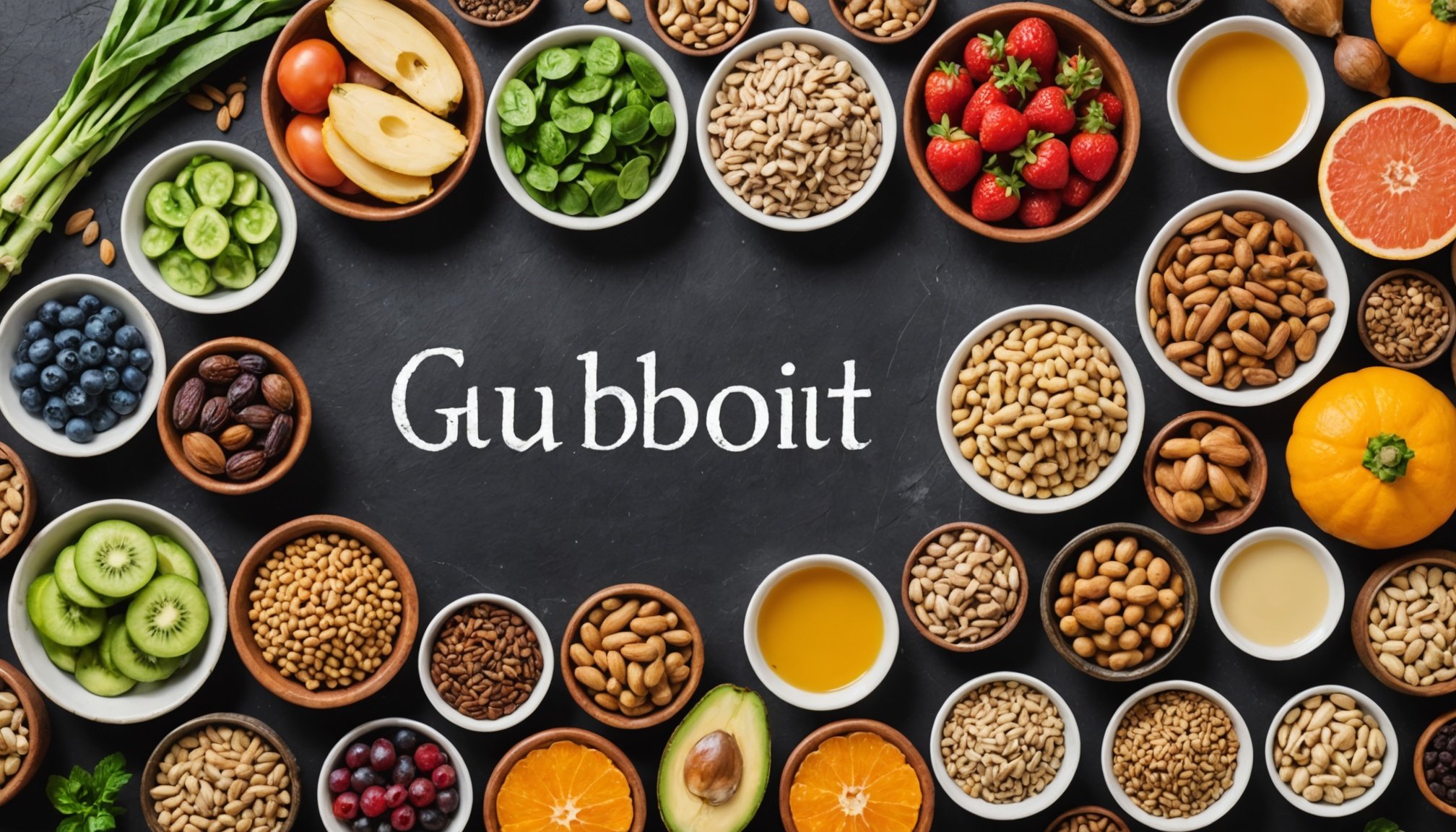Top Prebiotic Foods to Boost Your Gut Health: Discover the Best Options for Thriving Microbiota
Understanding Prebiotics and Their Role in Gut Health
When it comes to maintaining a healthy gut, the terms "probiotics" and "prebiotics" are often mentioned together, but they serve distinct roles. While probiotics are the live bacteria that inhabit your gut, prebiotics are the non-digestible fibers that feed these beneficial bacteria, helping them thrive.
Prebiotics are crucial for your gut health because they stimulate the growth of good bacteria, reduce the growth of disease-causing bacteria, and enhance the absorption of nutrients. They are typically found in foods that are resistant to your stomach’s acidic pH and cannot be absorbed by the digestive tract, making them the perfect food for probiotics.
Have you seen this : Understanding psychology: key concepts everyone should know
Top Prebiotic Foods to Include in Your Diet
Incorporating prebiotic foods into your diet is a simple and effective way to support your gut microbiome. Here are some of the best prebiotic foods you should consider:
1. Onions
Onions are a rich source of inulin, one of the most important forms of prebiotic fiber. Inulin helps stimulate the growth of beneficial bacteria in your gut, improving digestion, immune function, and overall health. Onions are versatile and can be used in almost any savory dish, from omelets to salads, stir-fries to soups. They are also packed with B vitamins, potassium, and help with iron absorption.
Also read : Mastering Self-Breast Exams: A Step-by-Step Guide to Effective Breast Health Awareness
2. Garlic
Garlic is another potent prebiotic food that promotes the growth of good bacteria like Bifidobacteria. It contains around 17% prebiotic fiber and has antifungal, antiparasitic, and anti-inflammatory properties. Garlic is easy to incorporate into your meals and can be used in a variety of dishes, from garlic-roasted salmon to one-pot garlicky shrimp and broccoli.
3. Leeks
Leeks, similar to onions and garlic, are part of the Allium family and offer high prebiotic content. They contain up to 16% inulin fiber, making them an excellent addition to your diet. Leeks are also high in flavonoids, which help fight off free radicals and protect against oxidative stress. They are a good source of vitamin K, essential for heart and bone health.
4. Jerusalem Artichokes (Sunchokes)
Raw Jerusalem artichokes are an excellent source of prebiotic fiber. They can be thinly sliced and used as a chip replacement or cooked as a substitute for potatoes and root vegetables. This food is particularly beneficial because it feeds the good bacteria in your gut, helping to maintain a healthy microbiome.
5. Chicory Root
Chicory root is packed with prebiotics, specifically inulin, which makes up about 68% of its fiber content. You can add chicory root powder to dessert recipes, smoothies, or use it as a substitute for coffee. It also comes in the form of herbal teas and cacao mushroom elixirs.
6. Asparagus
Asparagus is a delicious spring vegetable that contains around 2-3 grams of inulin per 100-gram serving. It not only provides fiber but also antioxidants, which help downregulate inflammatory processes in the body. Asparagus is beneficial for improving bowel transit time and has been suggested to have anti-cancer properties.
7. Konjac Root
Konjac root is a rich source of glucomannan, a type of prebiotic dietary fiber. This fiber is highly beneficial for healthy bowel function, improving bowel transit time and preventing constipation. Konjac root can be used in jellies, high-fiber flour, or as a dietary supplement.
8. Flaxseeds
Flaxseeds are tiny brown seeds that provide a huge amount of healthy prebiotic fiber, around 30% of their content. They promote the growth of probiotic bacteria and have been shown to boost the populations of beneficial bacteria while reducing unhealthy bacteria. Adding flaxseeds to your daily diet can significantly improve your gut microbiota.
How to Incorporate Prebiotic Foods into Your Diet
Incorporating prebiotic foods into your diet is easier than you think. Here are some practical tips and ideas:
- Raw Garlic and Onions: Use raw garlic and onions in your dips, sauces, and salads. For example, add raw garlic to your hummus or pesto, and use thinly sliced onions in your salads or as a topping for grilled meats.
- Grilled Onions: Lightly barbecue rings of raw onion to give them a slightly charred taste while keeping them undercooked. Use them as a garnish on grilled chicken or steak.
- Chicory Root Powder: Add chicory root powder to your smoothies or dessert recipes. You can also use it as a coffee substitute in herbal teas and cacao mushroom elixirs.
- Green Bananas: Add a green banana to your smoothie for a tasty and creamy drink with added gut-health benefits. Unlike fully ripe yellow bananas, green bananas are full of soluble fiber and prebiotics.
- Sauces and Dips: Rev up your sauces and dips with raw garlic and onions. These prebiotic-packed dips can be a delicious way to support your gut health.
Benefits of Prebiotics for Your Gut Health
Prebiotics offer a range of health benefits that are essential for maintaining a healthy gut microbiome:
Improved Digestion
Prebiotics help feed the good bacteria in your gut, promoting a balanced gut microbiome. This can improve digestion, reduce symptoms of irritable bowel syndrome (IBS), and enhance the absorption of nutrients.
Enhanced Immune Function
A healthy gut microbiome is crucial for immune function. Prebiotics help stimulate the growth of beneficial bacteria, which in turn support your immune system and help fight off infections.
Reduced Inflammation
Prebiotics have anti-inflammatory properties that can help reduce inflammation in the body. This is particularly beneficial for conditions like arthritis and other inflammatory diseases.
Better Nutrient Absorption
Prebiotics help your body absorb nutrients more effectively. By feeding the good bacteria, prebiotics ensure that these bacteria can perform their functions optimally, leading to better overall health.
Healthy Weight Management
Prebiotics can help in maintaining a healthy weight by regulating appetite and improving metabolism. A balanced gut microbiome is essential for weight management and overall health.
Table: Comparing Top Prebiotic Foods
| Food | Prebiotic Fiber Content | Health Benefits |
|---|---|---|
| Onions | Inulin | Stimulates beneficial bacteria, improves digestion, immune function, and overall health |
| Garlic | Inulin, FOS | Promotes good bacteria, antifungal, antiparasitic, and anti-inflammatory properties |
| Leeks | Inulin | High in flavonoids, vitamin K, supports heart and bone health |
| Jerusalem Artichokes | Inulin | Feeds good bacteria, maintains healthy microbiome, can be used as a potato substitute |
| Chicory Root | Inulin | High fiber content, can be used as a coffee substitute, supports healthy bowel function |
| Asparagus | Inulin | Provides fiber and antioxidants, improves bowel transit time, potential anti-cancer properties |
| Konjac Root | Glucomannan | Improves bowel transit time, prevents constipation, used in jellies and high-fiber flour |
| Flaxseeds | Dietary Fiber | Promotes growth of probiotic bacteria, boosts beneficial bacteria populations |
Practical Insights and Actionable Advice
To make the most out of prebiotic foods, here are some practical insights and actionable advice:
- Start Slow: If you are new to incorporating prebiotic foods into your diet, start with small amounts to allow your gut microbiome to adjust. Sudden changes can lead to digestive discomfort.
- Diversify Your Diet: Include a variety of prebiotic foods to ensure you are getting a broad range of prebiotic fibers. This will help support a diverse gut microbiome.
- Combine with Probiotics: For maximum benefits, combine prebiotic foods with probiotic foods. This synergy is known as synbiotics and can significantly enhance gut health.
Quotes from Experts
- "Onions are a must-have pantry staple when it comes to gut health thanks to their high content of prebiotic fibers, especially fructooligosaccharides (FOS). These fibers help stimulate the growth of beneficial bacteria such as Bifidobacteria and Lactobacilli," says Sam Schleiger, M.S., RDN, CD, CLT, IFNCP, registered dietitian nutritionist and owner of Simply Nourished Functional Nutrition.
- "Regular consumption of beans (about one cup per day) was linked to improved gut microbiota diversity, which is often associated with better digestive health," notes Jenna Volpe, RDN, LD, CLT, gut health dietitian of Whole-istic Living.
Maintaining a healthy gut microbiome is crucial for overall health, and prebiotic foods play a vital role in this process. By incorporating foods like onions, garlic, leeks, Jerusalem artichokes, chicory root, asparagus, konjac root, and flaxseeds into your diet, you can support the growth of beneficial bacteria, improve digestion, enhance immune function, reduce inflammation, and maintain a healthy weight.
Remember, a balanced diet that includes a variety of prebiotic foods is the key to a thriving gut microbiota. Start making these changes today, and you will soon notice the positive impact on your overall health and well-being.











